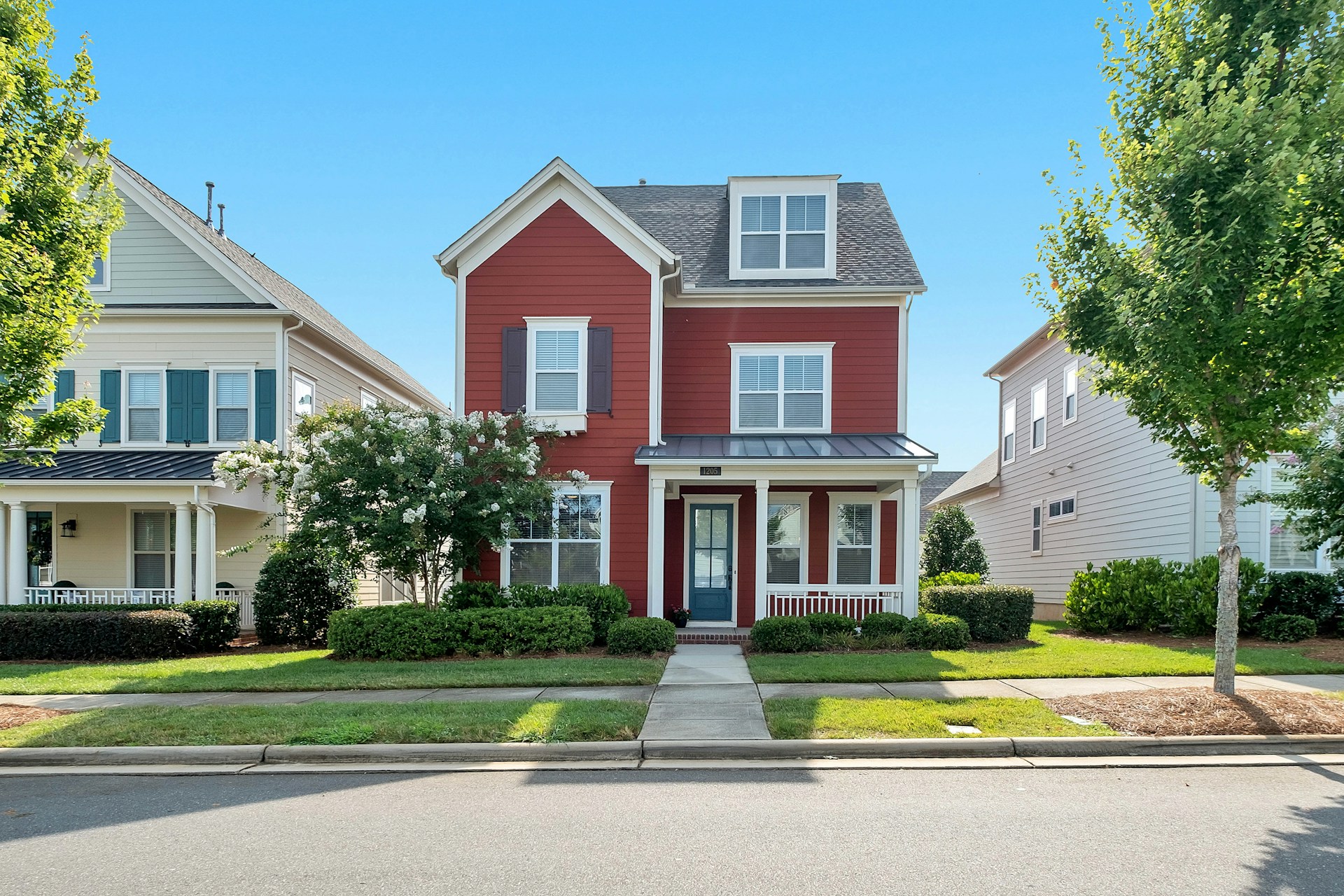Imagine finally deciding to sell your Massachusetts home, only to find a bright orange notice taped to the door. It’s from the city’s building department, warning of code violations or a stop work order that halts construction entirely. The feeling is deflating, maybe even panic-inducing, especially if you were counting on that sale to move forward quickly. The truth is, this situation is more common than most homeowners realize. With the right approach, guidance, and strategy, you can still sell your property—even with those violations hanging over your head—and come out in a stronger position than you might expect.
Understanding What Code Violations and Stop Work Orders Mean
In Massachusetts, a code violation means that a property does not meet certain safety, structural, or zoning standards set by the local building department. These issues can range from something simple, like missing handrails or outdated electrical systems, to major structural deficiencies such as unpermitted additions or unsafe plumbing. A stop work order, on the other hand, is more serious. It’s a formal directive that immediately halts all construction or renovation activity, typically issued when a project proceeds without the proper permits or fails inspection.
As a licensed real estate broker in Massachusetts, I’ve seen homeowners freeze up when they receive that notice. They think it means they can’t sell. In reality, it just means there are extra steps to take—and often multiple paths to resolution. Some sellers decide to correct the violations before listing, while others opt to sell as-is, disclosing the issues honestly to potential buyers.
Can You Sell a Home in Massachusetts with Code Violations?
Yes, you absolutely can. Massachusetts law doesn’t prevent homeowners from selling a property with open code violations or active stop work orders, as long as you disclose those issues clearly. What typically happens is that the buyer, their lender, or their inspector will request documentation showing what needs to be fixed and whether permits were pulled. The buyer may then use that information to negotiate the sale price or request that certain repairs be completed before closing.
However, not every buyer will be comfortable with this level of uncertainty. That’s why traditional listings for homes with serious violations can linger for months. Lenders often refuse to finance properties that don’t meet safety or code requirements, narrowing your pool of potential buyers to those who can pay cash or who specialize in buying homes that need major repairs. In those cases, selling directly to a reputable Massachusetts cash home buyer can be the simplest and fastest route forward.
Common Massachusetts Code Violations That Affect Home Sales
While each city and town has its own building codes, the most common violations I see across Massachusetts include:
- Unpermitted electrical or plumbing work
- Basement conversions or finished attics done without inspections
- Missing smoke or carbon monoxide detectors
- Unsafe decks, staircases, or handrails
- Outdated heating systems or illegal venting
- Structural changes made without permits
- Lead paint hazards in older homes
- Improper septic system maintenance or Title V failures
It’s worth noting that many of these issues don’t automatically make your home uninhabitable. But they do create hurdles for buyers who need financing or want a move-in-ready home. If your goal is to sell quickly or avoid major renovation costs, understanding these violations early helps you choose the right selling strategy.
What to Do If You Receive a Stop Work Order
A stop work order can feel like hitting a wall in the middle of a project. It’s the city’s way of saying, “Pause everything until this is resolved.” The good news is, it’s not a permanent barrier—it’s a red flag that can be addressed with the right steps. Start by reading the notice carefully to understand why it was issued. Usually, it will list specific reasons such as missing permits, unsafe work conditions, or deviations from the approved plans.
Next, contact your local building department. Explain your intent to comply and ask what documentation or corrections are needed to lift the order. In some cases, you’ll need to hire a licensed contractor or structural engineer to inspect the work and file the appropriate permit applications. Depending on the municipality, fines may apply, but many cities will work with homeowners who show good faith efforts to resolve the issue.
If the process feels overwhelming or expensive, you still have options. Many homeowners in this position decide to sell the property as-is, especially if repairs would cost more than the home’s expected value increase. In those situations, cash investors or specialized buyers can take over the project, assuming full responsibility for bringing the home into compliance after purchase.
Repairing vs. Selling As-Is: Weighing the Pros and Cons
There’s no single right answer when it comes to dealing with code violations. It depends on your finances, your timeline, and your comfort level with uncertainty. Repairing the issues before selling can make your property more appealing to traditional buyers and may help you secure a higher price. However, it also means fronting the cost of permits, materials, and labor—and waiting weeks or months for inspections and approvals.
On the other hand, selling as-is can mean less hassle and a faster sale. You disclose the problems honestly, price the home accordingly, and move forward with a buyer who’s willing to take on the repairs. Here’s a simple breakdown to help weigh your decision:
- Repairing before sale: Higher potential sale price, but more upfront cost and time investment.
- Selling as-is: Faster closing, fewer obligations, but typically a lower sale price.
Many sellers underestimate the carrying costs of waiting months to sell. Mortgage payments, taxes, utilities, and insurance continue to pile up, often eating away any potential profit from a higher sale price. That’s why sellers dealing with extensive violations often choose the as-is route, particularly when working with experienced cash buyers familiar with Massachusetts building laws.
How Disclosures Protect You When Selling a Home with Violations
Massachusetts has clear disclosure laws that protect both buyers and sellers. As a homeowner, you must disclose any known defects, code violations, or unpermitted work that could impact safety or value. Failing to disclose can lead to legal consequences later, even after the sale closes. Being upfront, even about unpleasant details, builds trust and can prevent deals from falling apart mid-transaction.
If you’re unsure what qualifies as a disclosure, it’s best to speak with a licensed real estate attorney or your broker. They can review the property’s history, permits, and inspection reports to ensure everything is presented accurately. This level of transparency can actually make buyers more comfortable, especially those who plan to renovate or flip the property. They appreciate knowing exactly what they’re getting into.
Tips for Selling a Massachusetts Home with Code Violations Fast
Speed matters when code enforcement is involved, since open violations can lead to fines or escalating penalties over time. Here are a few practical steps that can help you sell faster and with fewer headaches:
- Gather documentation: Collect inspection reports, permits, and any correspondence from the city. Buyers and investors will want to review these upfront.
- Get an as-is market evaluation: Ask a local real estate expert or investor for an honest estimate of your property’s value in its current condition.
- Consider pre-inspection: Even if your home has violations, an independent inspection can clarify the full scope of issues, helping you price the home realistically.
- Target the right buyers: Focus on investors, developers, or cash buyers who specialize in properties that need work. They’re more likely to see potential where others see problems.
- Stay communicative: Keep lines open with the building department. Active cooperation often leads to faster resolutions and may prevent further fines.
These steps not only speed up the process but also minimize surprises during negotiations. In my experience, the homeowners who stay proactive tend to sell with less stress and fewer setbacks, even when the violations are significant.
When Cash Home Buyers Make the Most Sense
For many Massachusetts homeowners, selling to a trusted cash home buyer is the most practical solution. These buyers don’t rely on lender financing, which means they can close in days rather than months. They purchase properties in any condition, from outdated rentals to half-finished renovations under stop work orders. Most importantly, they assume the risk and responsibility of resolving those violations after purchase, giving you a clean break and immediate peace of mind.
Unlike traditional buyers, cash home buyers understand local code enforcement processes and can navigate them efficiently. They often have relationships with contractors, inspectors, and attorneys who can help clear violations quickly. That network makes them uniquely positioned to handle the very issues that make your home difficult to sell through conventional channels.
Final Thoughts
Selling a Massachusetts home with code violations or a stop work order doesn’t have to mean defeat. It’s a matter of shifting your perspective from what’s gone wrong to what’s still possible. With transparency, smart strategy, and the right kind of buyer, you can move forward confidently and on your terms. Every property has potential—it just takes the right approach to unlock it.
If you’re dealing with open violations, unpermitted work, or a stalled renovation and need to sell fast, trusted cash home buyers like Pavel Buys Houses can help. Our team specializes in purchasing Massachusetts properties in any condition, including those with code enforcement issues or stop work orders. We handle the details, offer fair cash prices, and close quickly so you can focus on your next chapter without the stress of repairs or legal hurdles. Reach out today to see how we can help you turn your situation into a smooth, profitable transition.
⚡ Sell Your House Fast
"*" indicates required fields

Pavel Khaykin
Pavel Khaykin is the founder and author of Pavel Buys Houses, a nationwide home buying company that helps homeowners sell their properties quickly for cash. With a strong background in real estate and digital marketing, Pavel has been featured in The New York Times, ABC News, and The Huffington Post. His mission is to make the home-selling process simple, transparent, and trustworthy for every homeowner he works with.



![Landlord Rights When Tenants Violate the Lease in Massachusetts]](https://www.pavelbuyshouses.com/wp-content/uploads/2025/11/landlord-rights-when-tenants-violate-lease-massachusetts.jpg)



